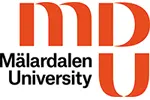We're moving! This site will be relocating to goingto.university in 2026. Please update your bookmarks to the new address.


| The award | How you will study | Study duration | Course start | Domestic course fees | International course fees |
|---|---|---|---|---|---|
| MSc | Full-time | 2 years | September | - | SEK 270000 total |
The programme will provide you with a broad and relevant knowledge of mathematics and its applications. This knowledge is in high demand since tomorrow’s technology depends on mathematical methods and calculations. The programme will give you knowledge and skills that will be useful to you in developing new technology, building a sustainable society or running your own successful businesses.
The Master’s Programme in Engineering Mathematics is designed to equip students with the mathematical tools for developing tomorrow’s technology. You will have a broad and relevant knowledge of mathematical applications and methods that are useful both in private enterprise and in the academic world, among other areas. You will master mathematical methods with applications in statistics, information technology, computer science, energy and environmental engineering, robotics and automatic control engineering as well as optimisation.
The programme is carefully designed yet flexible and will provide you with good theoretical knowledge and well-developed working methods in engineering. You will take courses in matrix theory, quantum computing, wavelets, optimisation and algebra, all chosen to be applicable in modern engineering. Topics treated in courses in the programme include big data analysis, secure and reliable communication, Pagerank and mathematical modelling. The flexibility of the programme will give you the opportunity to delve deeper into different areas that are of particular interest to you. Within the project courses, for example, you have the opportunity to get in direct contact with development and research or to collaborate with a company, as well as with your Master’s thesis.
Starting with the academic year 2011/2012, students who are citizens of countries outside the European Union (EU), European Economic Area (EEA) or Switzerland, are required to pay a tuition fee for studies in Sweden.
A completed Bachelor's degree from an institution of higher education of three years or more, equivalent to 180 credits, of which at least 90 credits are within mathematics, science or engineering of which at least 45 credits are progressively specialized in mathematics/applied mathematics.
A TOEFL test result, with a minimum score of 530 with a TWE score of at least 4.0 (PBT) or 72 with a TWE score of at least 17 (iBT) or an IELTS test result with an overall band score of at least 5.5 and no band score below 5.0 or equivalent is required.
Below are some suggested courses at other providers that you may also be interested in:
Cultural Heritage Conservation Science MSc
Dipartimento di Scienze della Terra, University of Milan
Find out moreFoundation Year to prepare for the MBA program (1 year) Foundation Year
Vatel Bordeaux
Find out moreIf you do not meet the entry requirements for this course then consider one of these postgraduate preparation courses from another institution:
International Foundation Programme for Postgraduate Study
Birkbeck, University of London
Find out moreGraduate Diploma in Law/Common Professional Examination GDL/CPE
Northumbria University Newcastle
Find out moreThere are 15 other courses listed from Mälardalen University. A selection of these are displayed below:
Join the StudyLink email list and never miss a chance to turn your study abroad dreams into reality!

Find out more about studying in Sweden